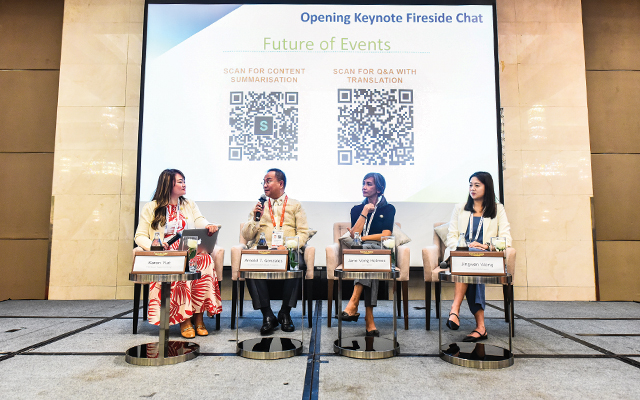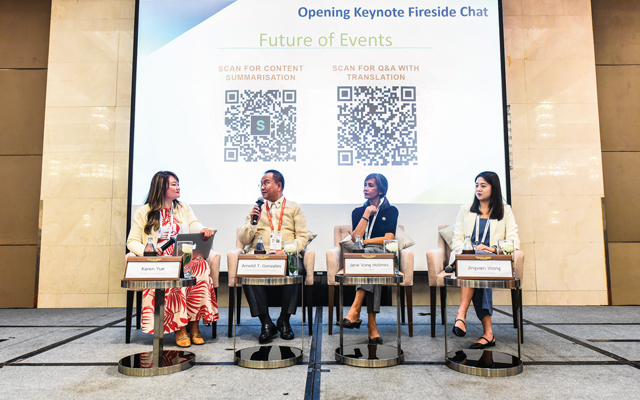
The rise of Return on Time (RoT), experience-driven programming, and the growing role of technology are three trends that will shape the meetings industry moving forward, according to panellists on the Future of Events fireside chat at IT&CM Asia and CTW APAC 2024.
Jingwen Wong, meetings & events leader for South-east Asia and China at FCM Meetings & Events, explained how businesses now prioritise time efficiency, which has resulted in a shift from Return on Investment (ROI) to RoT.

“Corporates are selecting events that truly deliver impactful outcomes. It’s no longer about the number of events but about their ability to deliver value in a short span,” Wong elaborated.
Jane Vong Holmes, senior manager for Asia at GainingEdge, further emphasised that RoT is particularly important for association meetings.
“Content is king – make it so compelling that people cannot afford to miss it,” Holmes said, urging organisers to ensure that the time delegates spend at business events is worthwhile.
Another major trend is the rising demand for experiential, immersive events.
Arnold T Gonzales, acting head of the MICE department at the Philippines’ Tourism Promotions Board, said storytelling and personalisation are employed to create outstanding marketing messages and impressions.
“Integrating storytelling and local culture into our events not only serves to forge a deeper connection with the destination for attendees, it also makes the experience more memorable,” he added.
Wong joined in: “It’s no longer enough to gather in a hotel ballroom for a series of PowerPoint presentations. Attendees want to be part of the action, and are looking for active participation.”
The role of technology in events was discussed. Wong pointed out that AI, virtual reality, and digital tools have become essential in delivering seamless, personalised experiences.
“Today’s attendees expect everything at their fingertips – from the agenda to networking opportunities,” she said.
Holmes also recalled how generative AI was deployed at ICCA Congress 2024 to collect feedback from hundreds of delegates about key business considerations and generate discussion topics and actions for future editions of the event.
However, while technology enhances event efficiency, Gonzales stressed that it cannot replace the human touch and there needs to be a balance. “No matter how advanced technology becomes, the service and connection that people offer remain irreplaceable,” he added.
The panel also addressed the need to upskill the workforce in the events sector, especially as the talent crunch continues to bug the industry.
Gonzales highlighted the Philippines’ efforts to train local communities: “We’re investing heavily in training programmes for the next generation of professionals, ensuring they can deliver the personalised, tech-enabled experiences that clients now expect.”




















